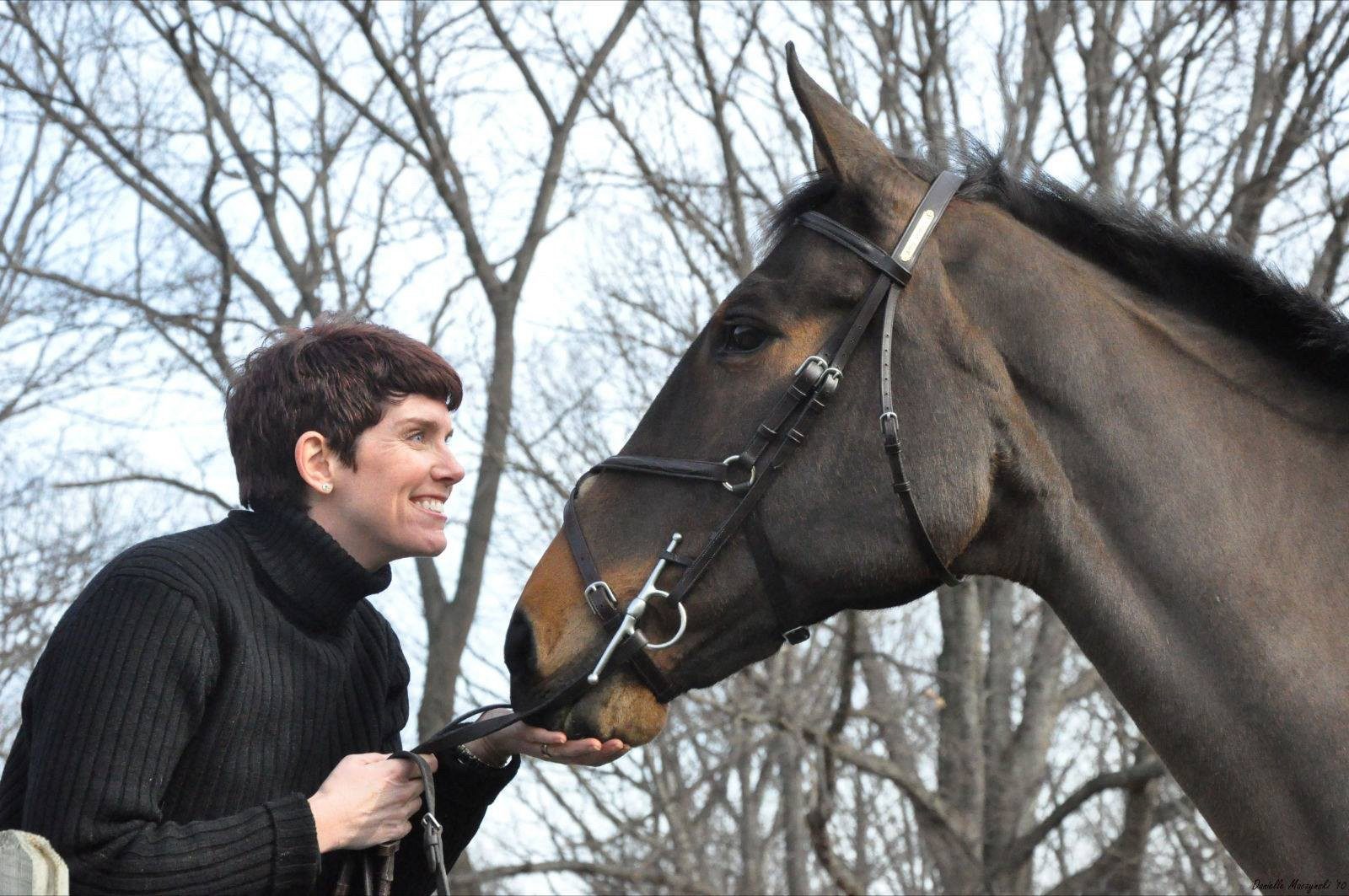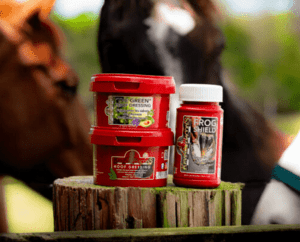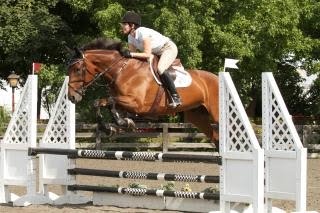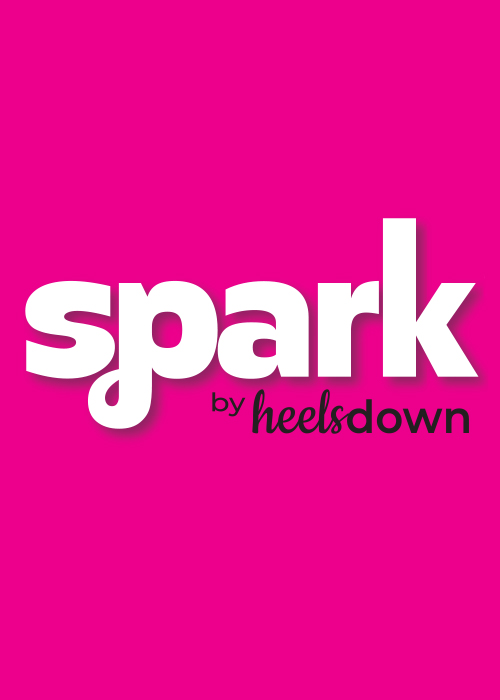When Tragedy Strikes: Don’t Ignore Your Own Warning Signs

I literally thought that a bomb had gone off. It felt like the explosion had blasted a ton of dirt in my face.
It was the unfathomable. The unspeakable. The kind of freak accident that haunts even a passing stranger in the aftermath. It was the tragic way Amy Vodraska lost her horse of a lifetime.
“It felt like the world just exploded,” she recalls.
The seconds after a fall can feel like minutes. Everything moves in slow motion. Sounds are muffled by the piercing pitch ringing in the ears. Amy could feel the dirt on her face and in her mouth. When she opened her eyes, she realized she was on the ground, no longer cantering away from the three-foot jump she’d managed to scale just moments before. Her horse, Sugar, lay in the dirt too.
“I literally thought that a bomb had gone off. It felt like the explosion had blasted a ton of dirt in my face,” she explained.
Amy suffered her second concussion on the same day she was forced to put down her “Sainted Mare” after her mare tripped while schooling fences at their home boarding barn. But it wasn’t herself she was worried about in those initial moments after the fall that changed everything. It was her horse.
Shock and grief would force Amy to sideline her own injuries.
“I jumped up and ran to her, totally not thinking about my own injuries,” Amy remembers. “My trainer and son were trying to call 911. The fall was horrific and they clearly were suspecting I’d concussed myself or worse but I wouldn’t let them. I stayed with her until the vet came and put her down. Afterward I was so distraught I refused to go to the E.R.”
Amy didn’t see a physician for days after, despite the headaches that lingered and later, the sudden onset of panic attacks.
Grief can consume all of us in deep and dark ways. For Amy, it prolonged the physical healing process needed after a concussion.
Heels Down Mag is exploring the stories of equestrian athletes who’ve suffered from concussions, and the short and long term effects of the injury on their health and performance. This is the third story in an ongoing series.
***
Amy, 48, an adult amateur hunter/jumper rider from Boonton, N.J., has been lucky enough to share her passion for horses with her son and daughter. The threesome have showed on the local and rated hunter/jumper circuits for years. Amy rode for years as a junior up until college, and returned to the sport in her mid-30s after having children.
For most of her time as an adult amateur, she rode the Sugar, a Dutch warmblood jumper. Their storied career took them through many three-foot amateur classes. But it was also aboard Sugar that Amy experienced her first and second concussions.
In the middle of a jumper class at a schooling show, Amy and Sugar miscommunicated about a looming distance to a fence. It’s a situation that could happen to anyone – pro, amateur or junior.
“I tend to be a micromanager and kept choking up on her. We got to a fence, I saw the long spot, she chose life and refused,” Amy explained. “I took the fence without her, landing on the other side with no landing gear whatsoever, just face first into the stone dust.”
Amy’s first thought when she came to in the dirt was, “Crap, I broke my sunglasses.” Then she realized she had a mouthful of grit and was terrified she may had knocked her teeth out. She immediately checked to make sure her mare was OK.
“She was trying to negotiate her way through the fence wreckage to get me,” Amy recalls.
Amy never lost consciousness and she said she was even joking with the paramedics crew while she was picking grit of her helmet. She was cleared to go home.
“I assured the EMS crew I was OK and did not need to go to the E.R. I took an ice pop for my swollen and cut up lips, then went over to my daughter’s ring to watch her show,” she said.
Read this next: One Blow to the Head Can Last a Lifetime
Amy didn’t think much of it the next day, when she boarded a flight for a work trip to Atlanta. But a “brutal headache” would follow her for the next five days. That was the start of the lasting effects of her first concussion.
“I realized something was pretty wrong when I found myself reading the same paragraph of a magazine article over and over again and could not understand it,” Amy said. “By the time I was diagnosed with a concussion, it had been over a week and I had been working and living like normal.”
That included riding. Amy was back in the saddle not long after the accident.
Nearly 45 percent of patients admitted to hospitals with sports-related traumatic brain injuries come from horseback riding, said Dr. Lola Chambless, an assistant professor of neurological surgery at Vanderbilt University, during a presentation at a U.S. Hunter Jumper Association meeting in 2016. Since then, Dr. Chambless, who is also an equestrian herself, has been proactively encouraging equestrians to utilize “baseline testing” before the start of the show season.
Baseline testing assesses memory and learning skills at a normal healthy period in a patient. Physicians can use that data later when assessing the impacts of a possible brain injury in the case of a fall or injury.
My thinking is delayed. I’m not as good as I used to be with complex thinking, reasoning and making persuasive arguments, which affects my ability to do my job and my confidence.
After the second concussion, in which Amy lost her horse, she again went nearly a week before seeing a doctor. Her physician cleared her to fly so she and her family could take a vacation, but she was “only allowed to sit by the pool and drool while we were there.”
Not long afterward, she was suffering from panic attacks at home and at work. Usually an all-star when it came to her job in sales, Amy said she lost all confidence, to the point that she found herself often in tears in customers’ parking lots and in bathrooms at trade shows.
“My thinking is delayed. I’m not as good as I used to be with complex thinking, reasoning and making persuasive arguments, which affects my ability to do my job and my confidence,” Amy said. “I have incredible anxiety cold calling and approaching prospective customers.”
Amy says sometimes, she has trouble accessing words. Other times she slurs them. It’s also made her less likely to want to go out with friends and socialize.
As far as riding, it took months for her to gain her confidence back to jump again. But she’s back doing it and has a new horse.
Like this Article? Try: Living in a Fog
“I get scared more easily. I am always waiting for the other shoe to drop. That’s a post-traumatic stress thing,” Amy said, who confirmed she’s also been diagnosed with PTSD. “I had panic attacks when I was driving for a while after the second concussion, and irrational fears when my kids left home.”
Amy considered seeing specialists that doctor friends and her own physician recommended, but her health insurance wouldn’t cover the exorbitant costs of those appointments. So she manages her symptoms on her own as best she can.
But it’s not all bad, Amy says.
“I still have a blood pressure spike whenever a horse trips, but I’m not a complete mess anymore,” she confesses. “Oddly enough, the horse I purchased about a year after (Sugar) passed was green, and a complete turd on the flat, but lovely to jump and he really helped my confidence jumping. So I’m better about that.”




